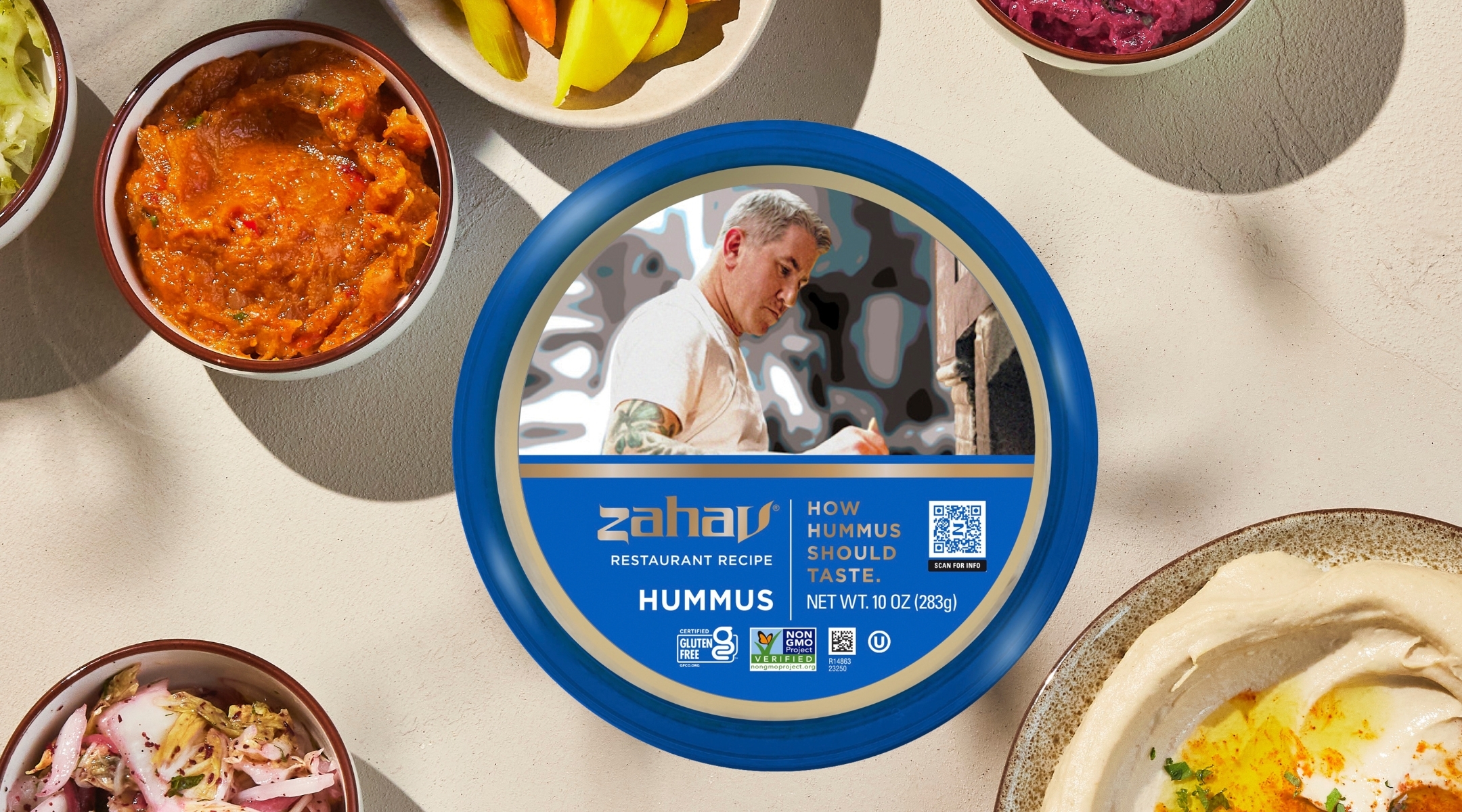Michael Solomonov’s famous — and controversial — Zahav hummus now available at Whole Foods
The award-winning chef’s famous hummus hits shelves a month after his restaurant was targeted by pro-Palestinian activists

The Zahav hummus recipe, now available at 150 Whole Foods locations, contains just six ingredients: tehina, chickpeas, lemon juice, salt, cumin and garlic.(Michael Persico)
(JTA) — Israeli-American celebrity chef Michael Solomonov’s renowned hummus has only been available in his Philadelphia and New York City restaurants — until now.
Hummus using the recipe from Zahav, Solomonov’s flagship Philadelphia restaurant, is now available at over 150 Whole Foods stores. The packaged hummus, like that at Zahav, doesn’t use oil — just a lot of tahini. Unlike the hummus at Zahav, however, it is certified kosher, bringing the recipe to a new cohort of customers.
The Whole Foods expansion comes at a tense time for Israeli food, with fights spurred by the Israel-Hamas war that have ensnared both hummus and Solomonov in multiple ways.
Last month, one of the James Beard Award-winning chef’s kosher falafel restaurants, Goldie, was targeted by pro-Palestinian activists in Philadelphia. Protesters chanted, “Goldie, Goldie, you can’t hide, we charge you with genocide.” Protest organizers said they were targeting the restaurant over its $100,000 donation to the Israeli emergency medical organization United Hatzalah. Their critics, who included Jewish leaders in Philadelphia, said the protest inappropriately targeted an Israeli over the actions of the Israeli government.
A fracture in Solomonov’s longtime friendship with the Palestinian chef Reem Kassis had already become public. Kassis, who also lives in Philadelphia, told the New York Times that she and Solomonov were no longer speaking several weeks into Israel’s war in Gaza.
“My experience of late has confirmed for me that food diplomacy does not work and that you cannot solve problems like the Israeli occupation of Palestine over the proverbial plate of hummus,” Kassis told the newspaper. (Solomonov did not comment for the story.)
And Sabra-brand hummus products were reportedly vandalized in suburban Philadelphia supermarkets last month, with stickers advising shoppers to boycott Israeli products placed on their packages.
The vandalism came amid renewed allegations that Israel has culturally appropriated hummus and other foods that are Palestinian in origin — including in a 1,000-signatory petition by food industry professionals.
For Solomonov, hummus is personal. He decided to focus his culinary career on Israeli and Jewish food after his brother was killed while serving in the Israeli army. David Solomonov volunteered to swap shifts with another soldier who wanted to attend synagogue on Yom Kippur in 2003; he was shot to death by a sniper.
Solomonov co-founded Zahav, the restaurant known for its hummus, salads, and skewers, with entrepreneur Steve Cook in 2008. They are the co-owners of CookNSolo Group, which also owns Goldie, Laser Wolf, Merkaz and K’Far.
While Zahav is not kosher-certified, the restaurant does not mix meat and dairy and does not serve pork or shellfish, in keeping with traditional Jewish dietary customs. Its hummus is one of its specialties.
“It’s the dish that brings people to the restaurant in the first place,” Solomonov said in a statement on Instagram, of hummus. “And more often than not, it is what brings people back. There’s something transcendent about the perfect bowl of hummus that tells our guests they’re in the right place.”
This article originally appeared on JTA.org.






















